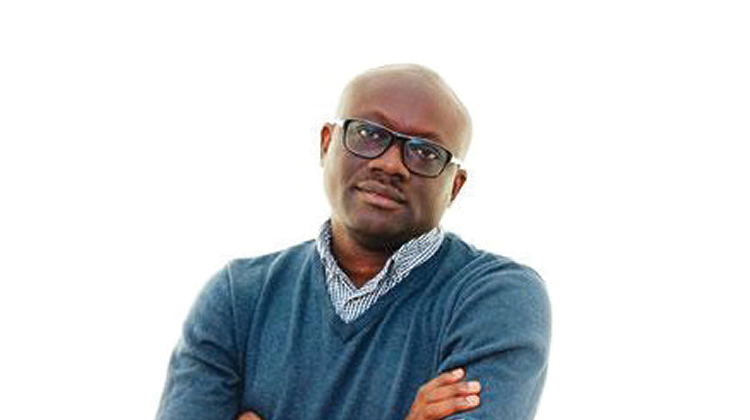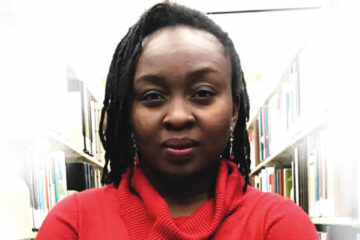[OPINION] Pray, who will love this country?

Simon Kolawole
By Simon Kolawole
Phew, what an escape! Senior officials of the federal ministry of justice must be thanking their stars by now. As the Commercial Court of England and Wales prepared to deliver its verdict over whether or not to set aside the $11 billion arbitration award against Nigeria, agents of P&ID Ltd reportedly reached out to President Bola Ahmed Tinubu to arrest the judgment and enter a settlement agreement. With the way the Nigeria legal team, led by Mr Mark Howard KC, had argued its case before The Hon Mr Justice Robin Knowles — and with P&ID failing to dispute the corruption allegations or even prove the honesty of its witnesses — the pendulum was swinging our way.
It looked like a scenario of “all or nothing” for P&ID, with things tending towards nothing. The only way to get any monetary compensation was the mooted settlement agreement. The details were not very clear but having initially proposed $2.5 billion in 2015 before agreeing to $850 million in the dying days of President Goodluck Jonathan’s government (before it was rejected by President Muhammadu Buhari), P&ID would expect a delicious figure from Tinubu. And the Nigerian traitors putting the agreement together were already calculating, as it were, their thirty pieces of silver. The settlement scam had almost been successfully sold to Tinubu. Pray, who will love this country?
In the absence of a substantive attorney-general, the lot fell on officials of the ministry of justice to give legal advice to the president on the proposed scam. They reportedly made a passionate case to the president that the judgment should not be arrested and that Nigeria had a solid chance of winning based on how the court proceedings went. Thankfully, Tinubu listened to them and made up his mind that P&ID should go to blazes, despite the pressure from the buccaneers. Now, just imagine what would have happened to those ministry officials if Justice Knowles had ruled against us and upheld the $11 billion award. They would have been roasted, or, in the least, skinned alive.
To be honest, when I first read up on the P&ID award, my initial proposal was an out-of-court settlement. The case looked bad. I did not see a way out. Nigeria had entered into a gas supply and processing agreement (GSPA) with P&ID in January 2010 and defaulted. In my article, ‘That $9bn award against Nigeria’ (August 18, 2019), I argued that Nigeria could not hope to escape liability by claiming sovereignty. Such rights are waived when a sovereign entity enters into a business venture. The redeeming feature, I argued, was that P&ID itself did not fulfil its part of the GSPA: that is, to build a gas processing facilities (GPF). How could Nigeria have built a pipeline to an invisible GPF?
After Nigeria repudiated the GSPA in August 2012 under a new government headed by Jonathan, P&ID went to the London Court of International Arbitration and won two awards: one, affirming Nigeria’s liability; two, getting a final “quantum” fine of $6.6 billion plus seven percent interest — about $1 million a day — backdated to March 2013. Nigeria’s argument that P&ID did not do any work to warrant the $6.6 billion liability failed. Our position that Nigeria’s assets could not be “attached” because of its sovereignty did not hold water either — with Justice Christopher Butcher of the English Commercial Court ruling in August 2019 that P&ID could enforce the judgment.
At this stage, it had become hopeless based on available evidence. But God loves Nigeria. An investigation ordered by Buhari and led by the Economic and Financial Crimes Commission (EFCC) uncovered several corrupt payments made by P&ID to some Nigerian officials who worked on the GSPA. The officials had, not surprisingly, skewed the agreement against their own country. The MoU that transformed to the GSPA had been altered to give P&ID an incredible advantage over Nigeria. In short, Nigerians worked against Nigeria. People who became billionaires courtesy of their “service” to Nigeria did not have any scruples betraying their fatherland. Pray, who will love this country?
The discoveries by the EFCC helped Nigeria enormously as Justice Ross Cranston of the English Commercial Court granted us respite in September 2019 — meaning the enforcement of the award was put on hold. Nigeria got an extension of time to challenge the decision of the arbitration tribunal based on previously undiscovered evidence of corrupt payments. The case was thereafter referred to trial before Justice Knowles. But there were more miracles on the way. During trial, it emerged that P&ID’s lawyers and officials were (unethically) in possession of several of Nigeria’s confidential internal legal documents, which gave away our strategies as well as our underbelly. Nigerians!
Some Nigerian officials were actually selling out their country to P&ID by leaking these critical documents for a mess of pottage! Copies of the confidential documents ended up in P&ID’s custody the moment they were shared by government officials. That was an ultimate betrayal of fatherland, but this appears to be a culture in Nigeria. After all, in one of the American cables that were published by Wikileaks in 2009, an official of Shell boasted that within minutes of any decision being taken in Aso Rock Villa, the information was always leaked to them. Up till tomorrow, there are Judases in the corridors of power. Their God is their bellies. Pray, who will love this country?
Things got better for Nigeria when it turned out that the evidence given to the arbitration tribunal by Mr Michael Quinn, co-owner of P&ID, was full of lies. It is called perjury. Quinn, who died in 2015, had claimed that P&ID had already obtained finance for the project, that it had done 90 percent of the engineering design, and that it had expended $40 million before the default. In fact, the engineering design was not financed by P&ID. It was for another project and was unfit for the GPFs under the GSPA. And even though P&ID was allocated land for the project in Calabar, Cross River state, it didn’t pay for it and never acquired it. In essence, there were no processing facilities.
Justice Knowles, relying on section 68 of the English Arbitration Act 1996, said he was satisfied that the awards (liability and quantum) were obtained by fraud and contrary to public policy. He made some barely disguised uncomplimentary remarks about the arbitration tribunal. He wondered how the tribunal identified “the sequencing of obligations with the apparent confidence it did”. The tribunal had concluded that it was impossible for P&ID to build the GPFs when Nigeria had not made arrangement for gas supply — but ignored the reverse fact: could Nigeria have built a gas pipeline to GPFs that did not exist? Clearly, both parties defaulted but the tribunal chose the sequence it liked.
P&ID had argued that “…any perjury that took place did not cause any substantial injustice within the meaning of s. 68 as it did not bring about the Awards (or any of them)”. In his judgment, Justice Knowles said: “I respectfully disagree. The Awards were the result of the Arbitration that happened. There is no question to my mind that the Arbitration would have been completely different, and in ways strongly favourable to Nigeria, had the fact of bribery of Mrs Grace Taiga when the GSPA was being made been before the Tribunal. It would have brought in the issue [of] whether the GSPA was procured by fraud, and as a result voidable.” The tribunal had relied on Quinn’s perjured evidence.
With Knowles now setting aside the enforcement of the award, I would say the rest is formality. In deciding the way forward, he wants to listen to both sides. Section 68 gives three options: (1) remit the award to the tribunal, in whole or in part, for reconsideration; (2) set the award aside, in whole or in part; (3) declare the award of no effect, in whole or in part. Having fully established that the awards “were obtained by fraud” and were procured in a way “contrary to public policy”, Justice Knowles knows there is only one option left: to set it aside in whole. The foundation is fraudulent. The GSPA is a “poisonous tree” — as Americans call it — and its fruits are automatically poisonous.
I am taking many things away from this judgment. First, this is good news for Nigeria. Many agreements are foisted on us by traitors who hope to benefit through judgment debts. Nigeria has now secured a leeway for judicial intervention over agreements obtained through corruption or under fishy circumstances. This has raised my hope on the $2.3 billion arbitration filed against Nigeria by Sunrise Power over Mambilla hydropower. How was the contract awarded a day after the Federal Executive Council (FEC) had stepped down the memo? What work did Sunrise do? How could Sunrise have spent millions of dollars, as it claims, when its declared total assets was N1 million?
Second, government officials who collude to skew agreements against Nigeria should be on notice that even decades after — when they should be enjoying retirement and playing with their grandchildren and great grandchildren — they can be called upon to answer embarrassing questions. Nigeria is generally a society where there are no consequences for bad behaviour, but I am sure some of those called to answer questions on P&ID did not find it funny. A Pharoah who does not know Joseph will arise one day and the privileges and protections enjoyed by these Judases will be taken away. I hope traitors in Tinubu’s cabinet who are already cutting deals will understand this.
Finally, I am happy that there are still government officials who love Nigeria — never mind the sad tone of this article’s title. They could have colluded with P&ID agents, got the judgment arrested and shared from the blood money. It is easy to cite the example of how a whole former chief justice helped P&ID secure the award against his fatherland and conclude that every Nigerian is like that. But there are still a few people who do not worship money and would not sell out their country. They may not be in millions, as we wish, but they exist. I know some of them. No, they are not perfect. But, yes, they are decent. Their consciences are not so dead that they can no longer differentiate between what is haram and what is halal. And this makes me believe Nigeria is not finished.
Culled from TheCable











